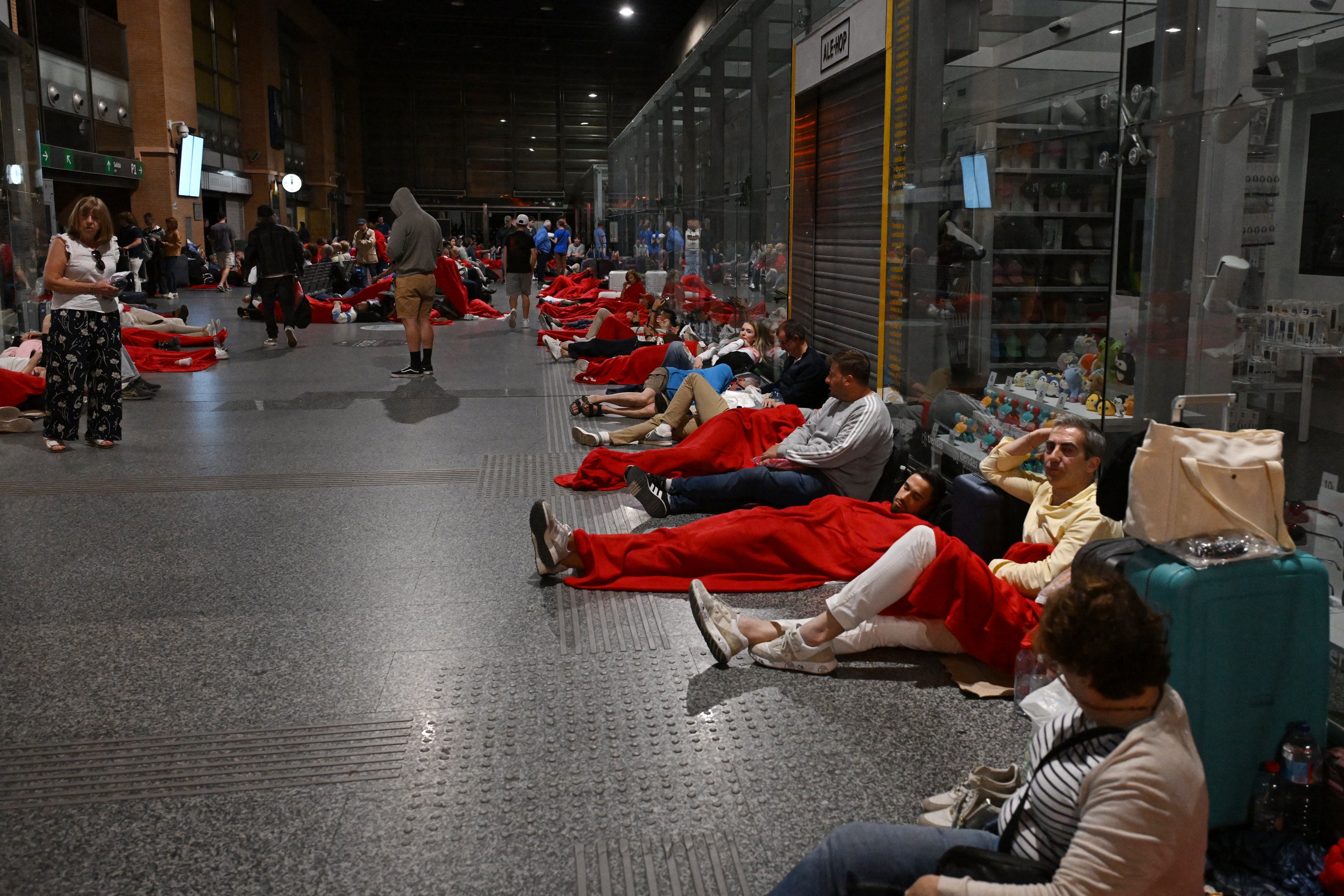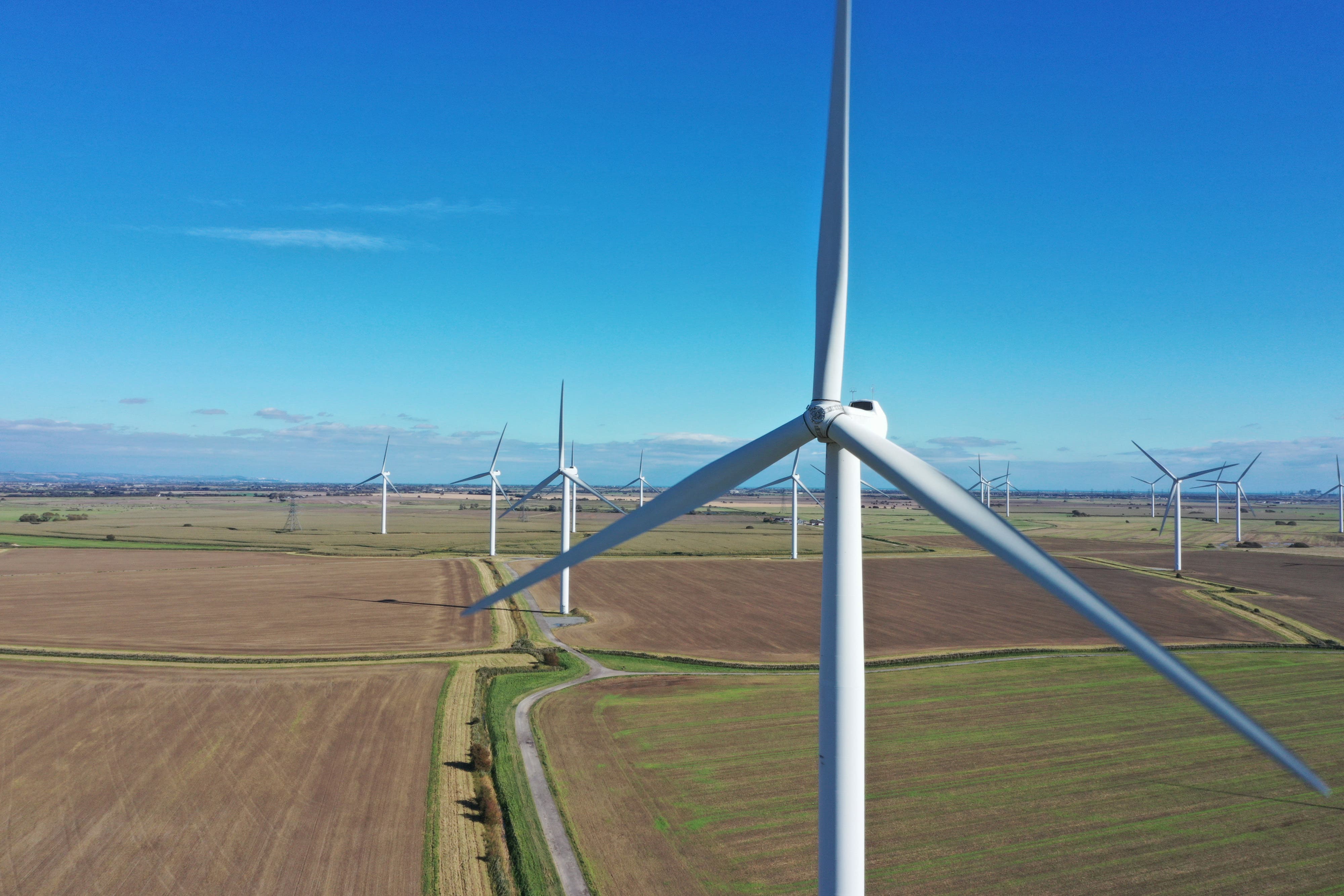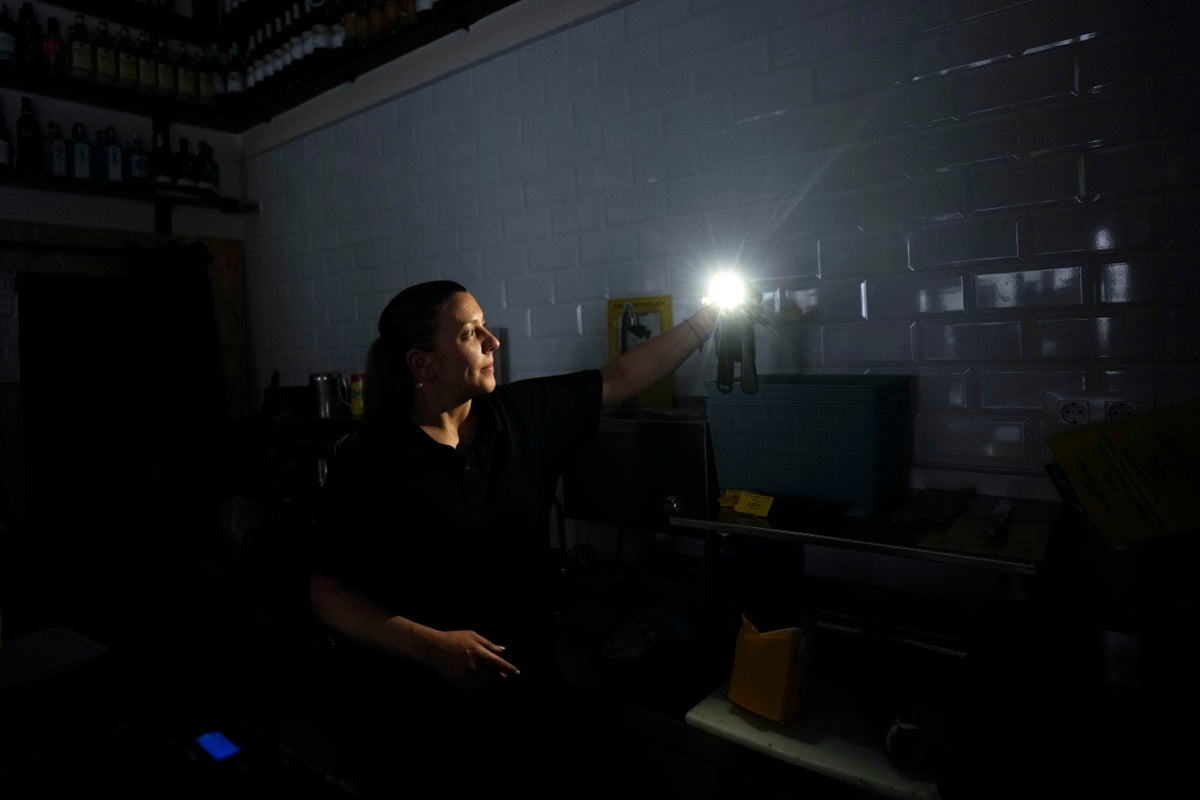The UK has “important lessons to learn” from the nationwide power outages which have brought Spain and Portugal to a standstill, experts have suggested.
Power was largely restored on Tuesday following the blackouts on the Iberian peninsula – which gridlocked traffic, shut down mobile networks and ATMs, and left people without water supplies on Monday.
But despite the cause of the blackouts remaining a mystery, the director of Aberdeen University’s Centre for Energy Transition warned it was “a case of being careful what we wish for as we pivot away from gas towards a renewable future” heavy on wind and solar.
Professor John Underhill told The Independent: “Whatever the ultimate cause, what is self-evident is that it is challenging for renewables to ramp up quickly when something unexpected occurs and underlines the need for countries like the UK to have contingency when unexpected stresses to the grid occur.”
Such concerns centre on “inertia” – resistance in the grid that helps to act as a protective buffer against sudden fluctuations in energy supply and demand – which is typically not supplied by renewables.

Prof Underhill, who has previously acted as an independent adviser to the Scottish Government, said the fact that Gibraltar was unaffected “demonstrates that having a base load that is not dependent on renewables can keep the lights on” in times of crisis.
Noting that the UK “has come very close” to blackouts – both in March 2013, and in January this year – Prof Underhill said it was therefore necessary for the UK “to be mindful” of Monday’s outage “and plan to make our grid fit-for-purpose as we decarbonise and increasingly electrify”.
Warning against going “too far too fast to avoid ending up in the same situation as those countries found themselves on Tuesday”, Prof Underhill stressed the need for a base load which includes nuclear and gas to help provide inertia.
Javier Cavada, chief executive of Mitsubishi Power’s EMEA division, also warned that, while the Spanish and UK grid are very sophisticated, well organised, and work with diverse sources of energy, “renewables alone don’t provide the grid services required to ensure reliable, stable, and uninterrupted power delivery”.
He told The Independent: “It is clear that in Spain and Portugal over the last 24 hours there was a lack of grid stability services where supply and demand were unbalanced, voltage couldn’t be stabilised, and the ability of the grid to manage the intermittency of renewables was lethally impacted.”

As countries push to integrate renewables, the “ability of power grids to absorb and manage fluctuations in demand and supply can cause outages like this, in any market that is relying on a large amount of renewables without grid reliability services”, said Mr Cavada.
But Lee Priestley of Conrad Energy, a firm tasked by the UK National Energy Service Operator to help provide inertia and maintain stability, said: “Inertia is vital to maintain the stability of the grid and keep power flowing, but it can be supplied via other means than fossil fuel generation.
“The required infrastructure cannot be built overnight, but once it is in place and operational the UK stands to benefit from significant savings when compared with the costs of keeping fossil fuel power stations online to just to balance the grid.”
A spokesperson for the National Energy System Operator said: “Great Britain’s electricity network was not affected by the power system incident on the European electricity network on Monday.
“We are working closely with our counterparts across Europe to understand the cause of the power system incident and to offer our support.
“It is too early to comment further on these events and whilst investigations are still ongoing.”

As investigators still seek to determine the cause of the outage, Daniel Muir, a senior European power analyst at S&P Global, told Politico that “the nature and scale of the outage makes it unlikely that the volume of renewables was the cause”.
“There was sufficient conventional generation available, with nuclear, hydro, cogeneration and thermal technologies all on the system prior to the event and … available to the operator,” he said.
With Spain and Portugal’s electricity grids tightly linked, as well as to the broader European system, such interconnectedness typically provides resilience.
However, Dr Jianzhong Wu, professor of multi-vector energy systems at University of Cardiff, said it can also mean that “disturbances can spread quickly if a major synchronisation failure occurs”.
Dr David Brayshaw, of the University of Reading, said: “Power systems are networks, connecting local disruptions to wider areas … If something on the network – a generator, a power line, or even a large electricity user – suddenly disappears, it creates a supply-demand imbalance, and the system frequency starts to shift.
“If that shift becomes too large, other components can trip offline, creating a snowball effect that worsens the imbalance and can trigger a major blackout – sometimes within seconds.”



